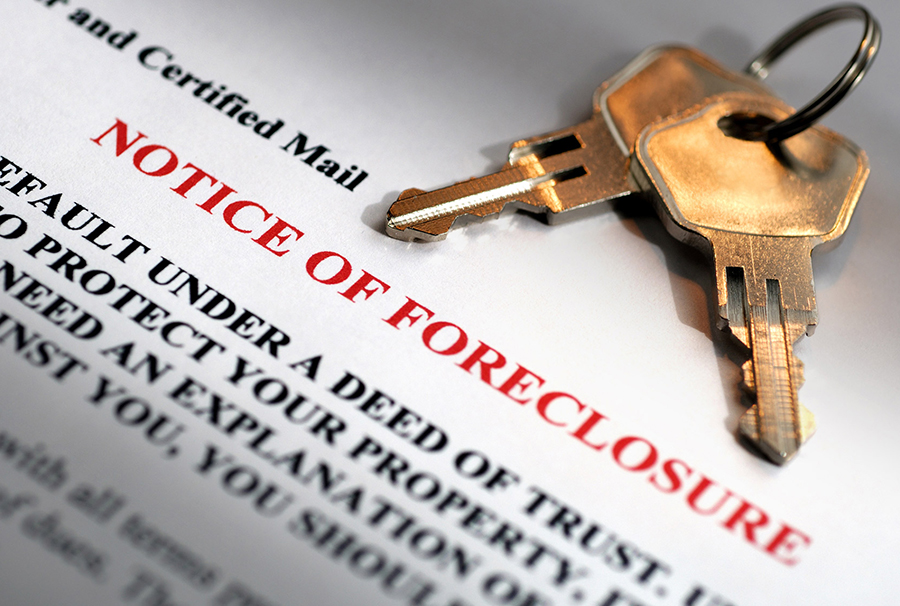
Most people think if you’re facing foreclosure, you must have done something wrong. Usually, it’s either missing payments or ignoring the bank.
But what if the bank is the one that broke the rules? In California, wrongful foreclosure isn’t just a nightmare—it’s a legal violation. And it happens more often than you’d think.
Lenders cut corners. Protections get ignored. And suddenly, you’re at risk of losing your home when none of it was your fault.
At Estavillo Law Group, we fight back against illegal foreclosures, hold lenders accountable, and protect what matters most: your home.
If your gut’s telling you something’s off about your foreclosure, trust it—and let’s talk. Reach out to our legal team today to discuss your situation. Call at (510) 982-3001 for a free phone consultation.
Working With Estavillo Law on Wrongful Foreclosures
Wrongful foreclosure is one of those things you think only happens to someone else—until it doesn’t. Until your lender skips steps, breaks laws, or buries you in a paper trail of contradictions. That’s when you need a law firm that doesn’t blink. That’s when you call Estavillo Law Group.
We’re a California-based team with one focus: protecting homeowners from illegal and unjust foreclosures. We know the state statutes, the loopholes lenders exploit, and the moves they make when they think no one’s watching. And unlike firms that settle for shortcuts or quick exits, we dig in and stay the course.
Whether you’re weeks away from a trustee sale or already reeling from a foreclosure that never should have happened, we step in fast, file hard, and fight smart. You have rights. We enforce them.

What Is Wrongful Foreclosure?
Wrongful foreclosure is a legal violation. In California, a lender must follow strict procedural steps under the Civil Code before taking your home. That includes notifying you properly, giving you a chance to cure the default, and following the rules of judicial or nonjudicial foreclosure.
When any of that goes sideways (e.g., skipping notices, forging documents, dual-tracking your loan, or foreclosing while you’re actively negotiating a loan modification), it may qualify as wrongful foreclosure.
Causes of Wrongful Foreclosures
Often, lenders are rushing to foreclose while ignoring the rules that are supposed to protect you. At Estavillo Law Group, we make it our business to break that pattern and hold every party accountable for the harm they cause.
So what triggers a wrongful foreclosure? Here are the most common causes we see:
- Improper notice: You never received a Notice of Default or a Notice of Sale. That’s a major red flag.
- Robo-signing and forged documents: Yes, it still happens. Lenders push through foreclosures using fake or improperly executed paperwork.
- Dual tracking: Your bank promises to consider a loan modification while simultaneously moving forward with foreclosure. This is illegal under California’s Homeowner Bill of Rights.
- Mishandled payments: You made payments, but they weren’t applied correctly, or the servicer claimed you were in default anyway.
- Violation of statutory procedures: California law outlines exactly how a foreclosure must proceed. If any step is skipped, the entire process could be void.
- Unlawful assignment of deed of trust: If the entity foreclosing on you doesn’t legally own the loan, that’s a big problem.
All of these aren’t just clerical errors. They’re potential grounds for litigation. And our team knows exactly how to build a case around them.
Proving a Wrongful Foreclosure Lawsuit
Knowing your foreclosure was wrongful is one thing. Proving it in court? That’s a whole different beast.
If you want justice, you need to build your case like a fortress. Every document, every email, every missed notice matters.
In California, to succeed in a wrongful foreclosure lawsuit, you have to prove four main elements:
- The lender failed to follow foreclosure proceedings or acted unlawfully.
- You were harmed as a result (think: lost your home, suffered financial damage).
- You had a right to the property at the time of foreclosure; and
- You were not in significant default, or you had cured the default.
What counts as “evidence” in a case like this? That could be:
- Payment records
- Communication logs with your mortgage servicer
- Copies of notices (or proof they weren’t sent)
- Audit trails showing chain of title errors
This isn’t just about proving your case. It’s about forcing accountability. It’s about showing the court that what happened to you wasn’t just unfair. It was unlawful. And at Estavillo Law Group, we make sure that message lands with impact.

Impact of Wrongful Foreclosure on Homeowners
Wrongful foreclosure isn’t just about losing a property. It’s about everything else you lose with it:
- Your financial stability
- Your credit score
- Your peace of mind
- Your family’s security
In many cases, homeowners also suffer emotional distress, reputational damage, and the logistical nightmare of finding new housing with a foreclosure on their record. The longer you let a wrongful foreclosure go unchallenged, the worse the fallout becomes.
Stopping the Foreclosure Process with an Injunction
One of the most effective tools? An injunction. At Estavillo Law Group, we move fast to file for a temporary restraining order (TRO) or preliminary injunction that can stop the foreclosure sale before it happens.
An injunction doesn’t erase the problem, but it does buy you critical time. It halts the lender in their tracks, forces a pause, and gives you the breathing room to explore defenses, challenge unlawful practices, or negotiate new terms. It turns panic into planning.
Injunctions are especially powerful when you have evidence of lender misconduct. California courts take these things seriously, but only if you bring them forward fast and effectively.
Getting Help from a Wrongful Foreclosure Attorney
Lenders have teams of lawyers. You need one too. Someone who understands California foreclosure law inside and out. Someone who has taken on the banks and lived to tell the tale.
At Estavillo Law Group, we offer:
- Deep knowledge of California Civil Code and foreclosure statutes
- Proven results in wrongful foreclosure cases
- Real talk, not sugarcoated promises
Whether it’s filing a last-minute injunction to stop a sale, unraveling the paper trail of a fraudulent assignment, or suing for damages after your home was wrongfully taken, we come prepared for every scenario.
With our more than 50 years of combined experience, we approach every case with that urgency in mind, and we’ve built a track record that proves it.
Our attorneys get it. We’ve seen families nearly torn apart by shady lending practices. We’ve been in courtrooms holding lenders accountable. We’ve reversed sales. We’ve won compensation. And we’re ready to fight for you.
Frequently Asked Questions
What are the most common reasons for wrongful foreclosure?
Failure to send required notices, dual tracking during loan modification, robo-signing documents, and foreclosing without legal authority are some of the top issues we see.
Can I stop a wrongful foreclosure before it happens?
Yes, by filing for a temporary restraining order or injunction. But you need to act quickly and with legal support.
What legal actions can I take to fight a wrongful foreclosure?
You can sue for wrongful foreclosure, breach of contract, fraud, and violations of California’s Homeowner Bill of Rights.
What evidence do I need to prove wrongful foreclosure?
You will need documentation like history of mortgage payments, communication with your lender, notices (or proof they weren’t sent), and any suspicious assignments or signatures.
How long do I have to file a lawsuit for wrongful foreclosure?
California generally gives you three years to file from the date of sale, but exceptions exist. Always consult an attorney as soon as possible.

Contact Us
Losing your home isn’t just a legal issue—it’s a deeply personal one. And if that loss is happening because your lender broke the rules, you deserve better. At Estavillo Law Group, we see you. We hear you. And we’re here to help you take your story back. Think your home is being wrongfully foreclosed? Reach out today for a free, confidential consultation. Call at (510) 982-3001 or complete our contact us form. Your future is worth defending.

